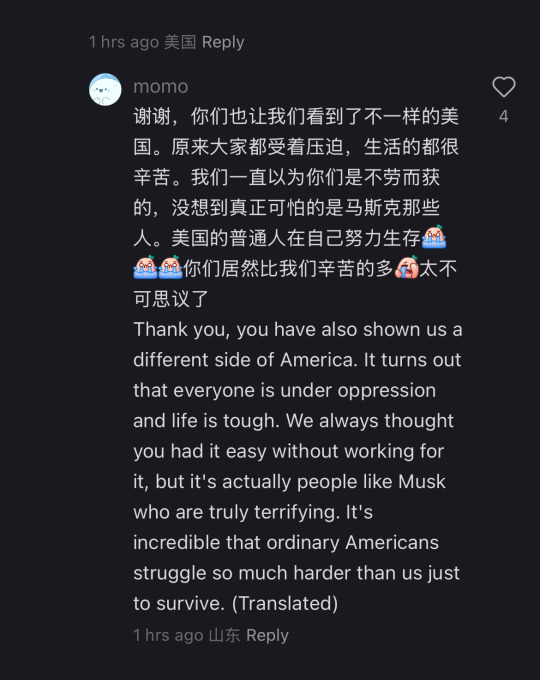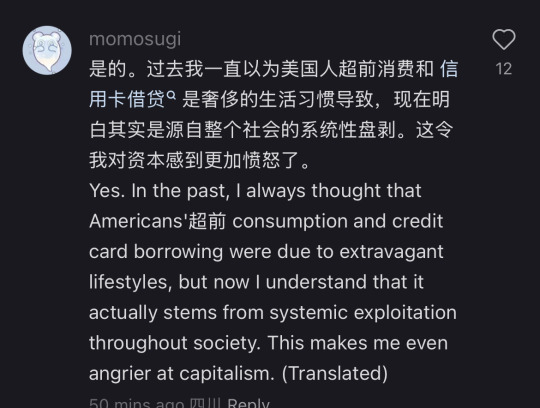#how to learn
Explore tagged Tumblr posts
Text
Look, I knew five languages by age 19 and now I am learning like 3 more. I work as a language instructor and a consultant. If I can give language learners only one advice, this is it.
STOP LEARNING WORDS ON THEIR OWN.
You're doing yourself a disservice by learning lists of "30 words you must know!" "100 most common words!" like it literally means nothing if you cannot use those words in an appropriate context with proper grammar. So what you actually need to do is learn those words via example sentences.
Of course, sentences have more words so you may think you're learning less but you're actually learning the way to use it in context. That's what's important.
Language is about communication, which also means if you want to learn languages, you have to observe how people communicate with each other universally. Native speakers never have a list of words they know and they don't count every single new word they've learned. So why are you doing it to yourself? What native speakers do is listen to the new word, remember the context they're spoken in, and keep using that word in that context. And that's why people go "wait, you can use that word LIKE THAT?" all the time. So you, a language learner, are also allowed to do that. I'm not even saying those word lists are useless but they're the most useful AFTER you've known most of them and are trying to go over them for practice etc. Native speakers do click on those word lists to check out how many words they don't know or to remind themselves of those words or to learn some facts about each word. That should be your goal as well.
Learn sentences. Learn them in context. Do not fall into the "I must know xx amount of words or I'm a failure at language learning" trap perpetuated by bloggers or youtubers or whatever. Have fun with it!
#language learning#studyblr#langblr#100 days of productivity#chinese studyblr#japanese studyblr#korean studyblr#how to learn#learning#academia#academic#academics#language study#language#languages#study tip#study#study motivation
983 notes
·
View notes
Note
How did you learn to draw? what do you use to draw? your art is very wonderful and inspiring! Have a good rest of your day :)
Thanks a lot for the sweet message!
Honestly, I think the best way to improve is to just draw every day.
I’m still learning too, but opening commissions recently really gave me the push to draw harder!
I use Clip Studio ;) Have a great day, nero!!
3 notes
·
View notes
Text
youtube
#project batman#batman#bruce wayne#training#exercise#fitness#work out#polymath#polyglot#studyblr#langblr#fitblr#polymathy#how to learn#Youtube
4 notes
·
View notes
Text
how to do well at school
(work smarter not harder)
i’m trying to compile a list of what’s been working for me academically especially with all the fun side effects of being autistic in the education system (and the variable motivation/executive functioning that comes with it). queuing this forever so i remember to apply these, but if they help you feel free to let me know how it goes!!
1.) Print out notes.
To be fair, this only really works if you have access to a reliable printer, but I imagine a sizeable percentage of people do. For me it was definitely worth investing in one. This is enormously helpful for several reasons:
no need to make notes in class - it’s all there, in front of you, like subtitles to the lesson. makes it so much easier to follow the class and if you miss a day because you’re ill/not coping/have zoned out for 30 mins, you’re not missing valuable content you’re going to need to read up on later
annotating pre-printed notes with little details the teacher is saying adds valuable context and information, and allows you to write in analogies/mnemonics/key evidence/links to other parts of the course in a really different style to the main notes so it doesn’t get confusing to read (annotating hand-written notes can get messy)
having a physically printed copy makes it feel more real, and therefore less likely to disappear in your mind, than just electronic notes. handling actual paper is also less tiring than sitting with a laptop/tablet in a lesson and typing (especially for me)
having that day/week’s notes pre-printed over the weekend makes you feel much more organised and is hours less work than doing pre-learning by handwriting notes
if you type up the notes yourself into a table on word with key word/subtitle/question on one side and definition/answer/explanation on the other, you’re transforming the textbook information into new information, which is very valuable revision and will help with keeping it in your mind; it’s like flashcards, but in note form, and helps chunk content into more manageable pieces
i struggle with processing speed. listening to information *and* comprehending it *and* taking notes at the same time is too much, especially when people talk much faster than i can write. having it all pre-written means i can focus on just understanding and consolidating, and by the time we’re set homework i don’t have note-completion and content-learning to do on top of it
it helps with understanding of the course, in terms of what you need to cover in which topics and what’s coming up next
the best thing about this is it allows for a lot of flexibility in terms of how much time/effort you put into it. on days where i have the energy to sit and learn, i’ll make detailed notes on an upcoming topic with bulletpoints from the textbook and added links to our wider reading, or google context to anything i don’t get. on days where it’s not happening, i’ll copy paste from a reliable revision source/scan a page of the book and be done.
2.) Copy out answers before attempting questions yourself.
definitely one of the least motivating things when doing questions is not knowing how to start, or how to get the answer. a quick way to fix that and get more confidence is to copy out/annotate pre-written example answers or solutions from the textbook or mark scheme. this gives you a sort of blueprint to follow, and makes your time less wasteful if you’re often going straight into questions only to get half of them wrong.
youtube videos with example problems are also really great for this. pause the video before the solution starts and try to work through as far as you can, and when you get stuck unpause and finish copying out the working. doing this before starting homework gets you a higher grade on them and means you’re not wasting time getting things wrong, learning it incorrectly, and only finding out when you get it back.
for essay-based subjects, asking for exemplary answers to annotate is also very helpful. note down use of structure, sentence starts used, anything that you find is good about it and helps it meet the criteria. then, try and write a response to a different question in the same or similar style. get that marked, get feedback, try again.
3.) Practice questions are worth more than anything.
don’t waste time making hundreds of versions of your notes or exclusively rereading flashcards/the textbook. this might be helpful for content learning early on, but long-term retention and exam technique only come with practice. it’s annoying, sure, but works like a charm. so:
test yourself regularly - identify gaps in your knowledge and work to patch them, then test yourself again
get a feel for what kind of questions are usually asked in exams and write your own, then answer them - this, with time, will make exams predictable, or at the very least make you better at understanding what questions want from you
if your teacher lets you have extra practice questions marked, use them as an incredibly helpful source of feedback for improvement so there’s not such a steep learning curve with the first few assignments. if they don’t, use assignments intelligently to see what gets you marks and what doesn’t, then use the feedback on that to revise your technique and improve. if you do badly and don’t learn from it, this is a waste.
for the most part, teachers are on your side and want you to learn. if you’re stuck and don’t know how to answer questions/get correct answers, chances are there’s someone you can go to.
4.) Interesting information is your friend.
draw diagrams. make mindmaps. add pictures to your notes. colour code by topic. highlight things. annotate little fun facts. anything to prevent notes from becoming walls of off-grey text that you can’t be bothered to read. this also has the added benefit of being more interesting to do. so if you have a process to learn, make a flow chart with funky shapes. if it’s context you’re adding, make a timeline or spider diagram. type in memorable little comments or jokes that will help you understand things. copy out graphs and models and doodle important people’s faces. this sticks.
and if you’re feeling really outlandish, make some memes! even if they’re really bad. but for information you absolutely need to know and simply have to memorise, a bad rhyme or punchline will make it much easier to keep in your head, especially when it’s associated with something you enjoy and already think about a lot. finding creative ways to transform information helps the learning process tremendously, even if you just end up writing fanfiction of your favourite characters learning it too.
5.) Have a routine.
set out clear and consistent times to do work, where it’s hard to get distracted. any time spend working (if you’re working smart) stacks up, so that 20 minute train ride where you’d otherwise be scrolling? do some reading. organise your notes. do a problem or two.
consistency is key with learning. our brains aren’t made for storing irrelevant information, so keep everything relevant. to be fair, sometimes this does require an interest in learning not everyone has, but if you can engage with your subject critically and start thinking about it in your day-to-day life, getting into the habit of noticing things and going “oh, this key thinker would’ve hated this magazine” or “woah, i know the equation for the motion of this pen i just chucked” i think makes a real difference between doing well and excelling.
using spaces where you won’t be tempted to other things is also useful. if you have responsibilities when you get home, spend an hour at the library. meet your friends after 5, until then you’ve got homework. keep mealtimes, sleep and work schedules consistent and it’ll be harder for you to forget or have other things come in your way. this doesn’t need to be hours and hours, either; an hour a day that you can sit and reread your notes when you have a spare moment, bullet point an answer to an exam question to test yourself, annotate information you missed, do some wider reading, watch a youtube video on a topic you didn’t get — this all stacks up, and quickly. working smart is using the time you have as usefully as possible, and that starts with finding time you’re currently not doing much with.
#anyways#personal#revision#school hacks#work smarter not harder#learning to learn#this is a psa to me#education#how to revise#how to learn#actually autistic#may add to this at some point
16 notes
·
View notes
Text
Ultimate Guide to Learn the Russian Language - Sub agree
Learning a new language can be both exciting and challenging. If you've set your sights on learning Russian, you're in for a rewarding journey. Russian is a rich and vibrant language with a fascinating history and culture. In this comprehensive guide, we will take you step by step through the process of mastering the Russian language. Whether you're a beginner or already have some knowledge of Russian, this guide will equip you with the tools and resources you need to become fluent in no time.............

4 notes
·
View notes
Text
I love talking to kids about disability bc
1. they often just Get It, and
2. they have 0 concept of disability as a tragedy or something pitiable.
I've watched kids get into an argument with a teacher bc they thought wheelchairs were cool. I told a kid that I can't stand for too long sometimes and they replied, "That's okay, I can't do cartwheels sometimes, but I just do other stuff then. You can sit down with me if you want". Today a girl asked me what the headphones on a classmate's desk were for and I told her that headphones are important for some kids because noises bother them, and she said she wished she had headphones at home, because her baby brothers make a lot of noise and it makes it hard to think. The idea that different people could use tools at different times is intuitive and simple and when accessibility aids are explained neutrally, kids don't see them as bad or unfortunate, they're just things that are useful.
Even mental disability!! In Kindergarten the other day one of the kids asked me why his table partner got stickers when nobody else did. I started off by saying, "Well, when you do your work well, it feels good, right? That's your brain giving you a reward," and the kid just right away went, "Oh, and the stickers are like his reward?" YES! You are 5 and have a better grasp on ADHD than most adults! Kids blow me away every day.
70K notes
·
View notes
Text
Really interesting thing I glimpsed on rednote today




I think We- we’re developing international class consciousness 
#ryders rambles#LIKE idk man i think it’s really cool how we’re learning about each other Ill be back with the reverse once I found a post on it
65K notes
·
View notes
Text
Tips to Learn When You Want to Learn, While Not Having the Motivation to Learn
𓆝 𓆟 𓆞 𓆝 𓆟 𓆝 𓆟 𓆞 𓆝 𓆟𓆝 𓆟 𓆞 𓆝 𓆟 𓆝 𓆟 𓆞 𓆝 𓆟
DISCLAIMERS:
I am not a professional; this is just what worked for me and may not work for everyone.
I suppose these could work as study tips, but they are not intended to be study tips.

horse
TIP 1: SOCIAL MEDIA (UNDER CONDITIONS)
This is especially helpful for those who have short attention spans (which is most people in this day and age). You've probably come across a few informative short-form videos when scrolling-- Good. Follow that. Your algorithm is catered towards you, so most likely, you will come across more content related to your interests. Follow the informative content creators. Interact with those posts, especially if you find them interesting or if you think it will be helpful to you.
However, many social media posts share false information. This is why it's especially important to do your research. If you don't want to research it now, find a way to bookmark, save, or message yourself to remind yourself to fact-check the information. If not for yourself, at least to prevent embarrassing yourself or tainting your reputation by unknowingly sharing false information.
TIP 2: ASK A FRIEND WHO KNOWS A LOT ABOUT THE SUBJECT
Have you ever watched/listened/read something, but despite your hearing being completely intact, all you heard were sounds and not words? I don't know about you, but I did. But this rarely happens when I'm talking to a friend-- Which is why I recommend this. You're not only less afraid to ask questions, but you can treat it as more of a conversation, making it less boring to you.
This is also especially helpful for those who can't bother to research, since you don't actually have to do the searches yourself.
Of course, not everyone has friends who are interested in the topics you want to learn. However, in case you do, you should you should look out for either a patient, smart friend who knows about your topic of choice, or a friend who is very interested in the topic and would love to talk about it.
TIP 3: PLAY A PODCAST (OR A MOSTLY TEXT-BASED VIDEO) IN THE BACKGROUND
This. If I could only use one of these tips, it would be this one. This is the most convenient. You're drawing/painting? Put a podcast on. You're walking? Put a podcast on. You get the idea. There are so many podcasts out there with such a huge range of subjects-- from art history to languages to true crime, there's sure to be something for everyone.
MY PERSONAL FAVORITE YOUTUBE CHANNELS TO LEARN STUFF (NOT NECESSARILY FOR BACKGROUND):
YouTube Channels: Kurzgesagt, TED ED, CrashCourse, WIRED (Especially Tech Support), perfumerism
Of course, I also watch other videos from other channels.
𓆝 𓆟 𓆞 𓆝 𓆟 𓆝 𓆟 𓆞 𓆝 𓆟𓆝 𓆟 𓆞 𓆝 𓆟 𓆝 𓆟 𓆞 𓆝 𓆟
And that's pretty much all I have for now! I hope my tips help :)
Luce ✶
#self improvement#self help#mental health#adhd#learning#knowledge#tips#tips and tricks#helpful#learning tips#dream life#motivation#personal growth#productivity#hobbies#life tips#advice#how to learn#learning stuff#no motivation#adhd tips#tips for adhd#how to get things done#being productive#productive
0 notes
Text
How to Learn Python for Beginners: Tips and Resources

Python has become one of the most popular programming languages in the world, known for its simplicity and versatility. Whether you are a complete novice or someone looking to expand your programming skills, learning Python can open up a world of opportunities in fields such as web development, data analysis, artificial intelligence, and more. This guide, "How to Learn Python for Beginners: Tips and Resources," aims to provide you with practical advice and valuable resources to kickstart your Python learning journey.
Understanding Python
Before diving into the learning process, it’s essential to understand what Python is and why it is so widely used. Python is an interpreted, high-level programming language that emphasizes code readability and simplicity. Its syntax is designed to be intuitive, making it an excellent choice for beginners. Python supports multiple programming paradigms, including procedural, object-oriented, and functional programming, which allows developers to choose the best approach for their projects.
Setting Up Your Environment
The first step in learning Python is to set up your development environment. Here’s how to get started:
Install Python: Download the latest version of Python from the official website (https://www.python.org/downloads/). The installation process is straightforward, and you can choose to install additional tools like pip, which is a package manager for Python.
Choose an Integrated Development Environment (IDE): An IDE is a software application that provides comprehensive facilities to programmers for software development. Popular IDEs for Python include:PyCharm: A powerful IDE specifically designed for Python development. Visual Studio Code: A lightweight and versatile code editor with excellent Python support. Jupyter Notebook: Ideal for data analysis and visualization, allowing you to create and share documents that contain live code.
Set Up a Virtual Environment: It’s a good practice to create a virtual environment for your Python projects. This allows you to manage dependencies and avoid conflicts between different projects. You can create a virtual environment using the following command:bashRunCopy code1python -m venv myenvActivate it with:On Windows: myenv\Scripts\activate On macOS/Linux: source myenv/bin/activate
Learning Resources
With your environment set up, it’s time to explore various resources to learn Python effectively. Here are some recommended resources:
Online Courses:Coursera: Offers courses like "Python for Everybody" by the University of Michigan, which is perfect for beginners. edX: Provides a range of Python courses from institutions like MIT and Harvard. Udemy: Features numerous Python courses, often at discounted prices, covering everything from basics to advanced topics.
Books:"Automate the Boring Stuff with Python" by Al Sweigart: A great book for beginners that focuses on practical applications of Python. "Python Crash Course" by Eric Matthes: A hands-on introduction to programming with Python, ideal for beginners. "Learn Python the Hard Way" by Zed A. Shaw: A popular book that emphasizes practice and repetition.
Interactive Platforms:Codecademy: Offers an interactive Python course that allows you to write code directly in your browser. LeetCode: A platform for practicing coding problems, which can help you improve your problem-solving skills in Python. HackerRank: Provides coding challenges and competitions to test your skills and learn from others.
YouTube Channels:Corey Schafer: Offers a series of Python tutorials that cover various topics in depth. Programming with Mosh: Provides beginner-friendly Python tutorials that are easy to follow. freeCodeCamp.org: Features comprehensive Python courses and tutorials for beginners.
Tips for Effective Learning
As you embark on your Python learning journey, consider the following tips to enhance your experience:
Practice Regularly: Consistency is key when learning a new programming language. Set aside time each day or week to practice coding. The more you code, the more comfortable you will become with Python.
Work on Projects: Apply what you learn by working on small projects. This could be anything from a simple calculator to a web scraper or a personal website. Projects help reinforce your knowledge and provide practical experience.
Join a Community: Engage with other learners and experienced developers by joining online communities such as Stack Overflow, Reddit (r/learnpython), or Python Discord servers. These platforms allow you to ask questions, share your progress, and learn from others.
Utilize Documentation: Familiarize yourself with the official Python documentation (https://docs.python.org/3/). It is a valuable resource that provides detailed information about Python’s features, libraries, and best practices.
Learn by Teaching: One of the best ways to solidify your understanding of a topic is to teach it to someone else. Consider writing blog posts, creating tutorials, or explaining concepts to friends or peers.
Stay Curious: Python is a vast language with numerous libraries and frameworks. Explore different areas such as web development (Django, Flask), data analysis (Pandas, NumPy), and machine learning (TensorFlow, scikit-learn) to find what interests you the most.
Conclusion
Learning Python can be an exciting and rewarding journey, especially for beginners. By setting up your environment, utilizing the right resources, and following effective learning strategies, you can build a strong foundation in Python programming. Remember that persistence and practice are essential to mastering any skill, so stay motivated and keep coding!
0 notes
Text

#learn how to burn cds !#start using your parents vcr !#get a dvd player for $10 at a garage sale !#make mixtapes for your loved ones !!#buy a laserdisc player !!!!!!#levis greatest hits
21K notes
·
View notes
Text


Fiddleford found one of his old shirts
#When in doubt about what to do with a character's hands- give them a mug to hold.#I need to learn how to draw beards properly#gravity falls#the book of bill#stanford pines#ford pines#fiddleford mcgucket#old man mcgucket#fiddauthor#digital art#my art#fanart#comic
57K notes
·
View notes
Text
youtube
How to Get Unlimited Google Photos Storage Forever!
#google photos tips#google photos#How to Get Unlimited Google Photos Storage Forever#how to learn#education#free education#technology#educate yourself#educate yourselves#tips and tricks#youtube#google tips#google#Youtube
1 note
·
View note
Text



Handposting
#the 2nd and 3rd works were supposed to be in the same style as my bad dog hands#however they went in completely different directions#obviously.#figured I’d still post them all together#learning to go with the flow of how a work ends up turning out rather than getting mad it’s not following the idea I had in my head is good#saved me from scrapping a fuck load of works#still wanna do more bad dog hands. idk why it’s impossible for me now#my art#digital art#artists on tumblr#art masterpost#surreal art#digital painting
14K notes
·
View notes
Text

This but Sonadow ⤵


#I really need to learn how to render better bc I still dont like how the only shading in here turned out#also I dont know how to make comics yet sorry if its hard to understand#but to be kinda good at something you gotta be bad at it first ദ്ദി ˃ ᴗ ˂ )#my art#art#digital art#sth#sonadow#shadonic#sonic x shadow#shadow x sonic#sonic and shadow#sonic the hedgehog#shadow the hedgehog
9K notes
·
View notes
Text

happy valentines day, sonadow nation ^^
#my art#i'm still learning how to draw them so its kinda stiff but#i try my best :]#yes its the dumb meme#i only know how to recycle dead memes cry and be bisexaul#shadow the hedgehog#sonic the hedgehog#sonadow#sonic fanart#art#artists on tumblr#digital art#sonic art#sonic x shadow#sonic movie 3#sonic 3#sonic x shadow generations#monthofsonadow2025#sth
14K notes
·
View notes